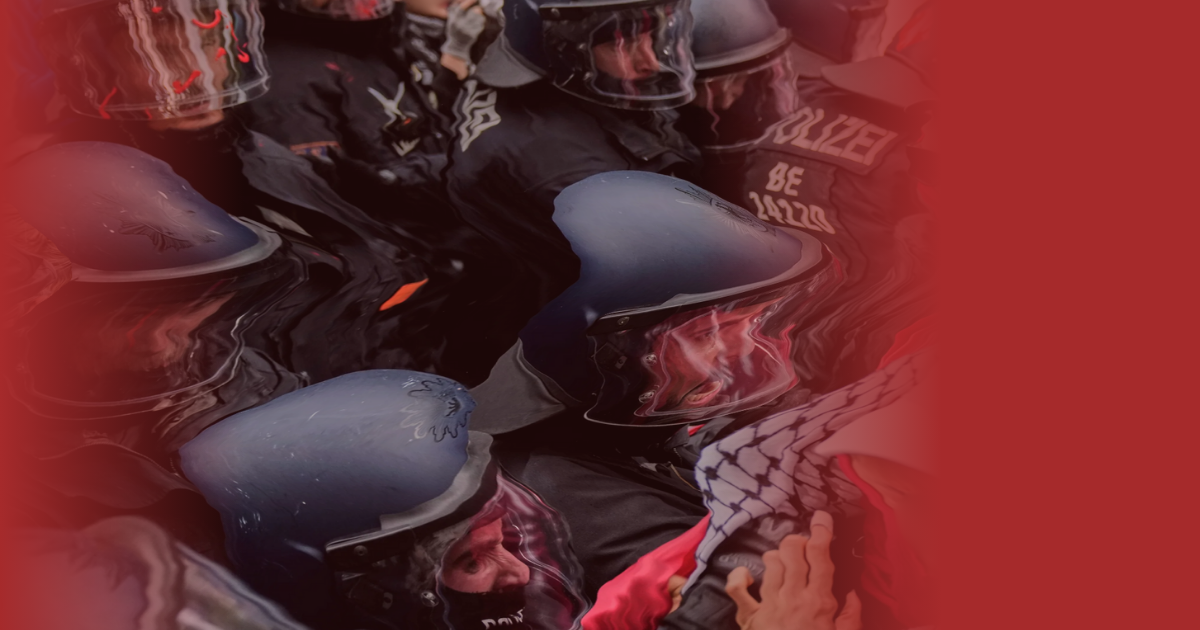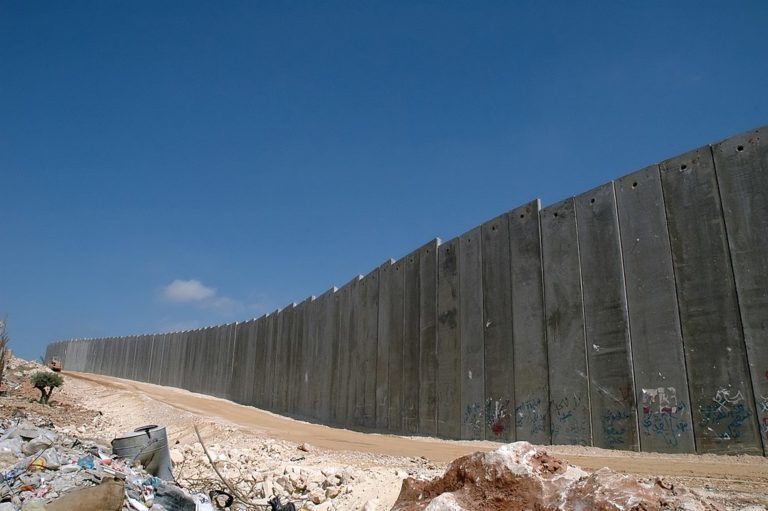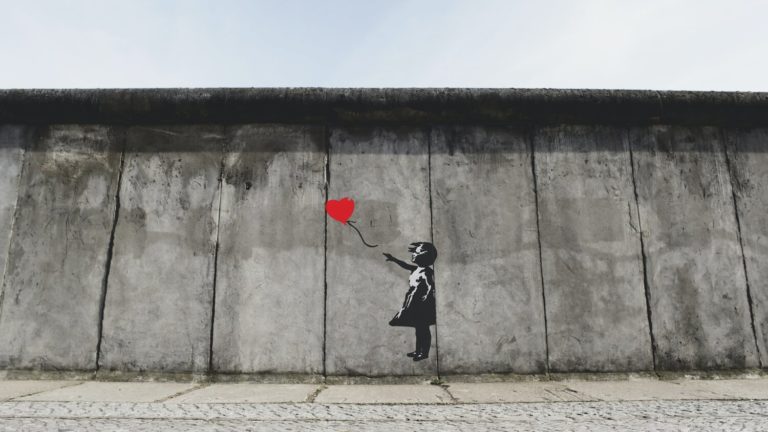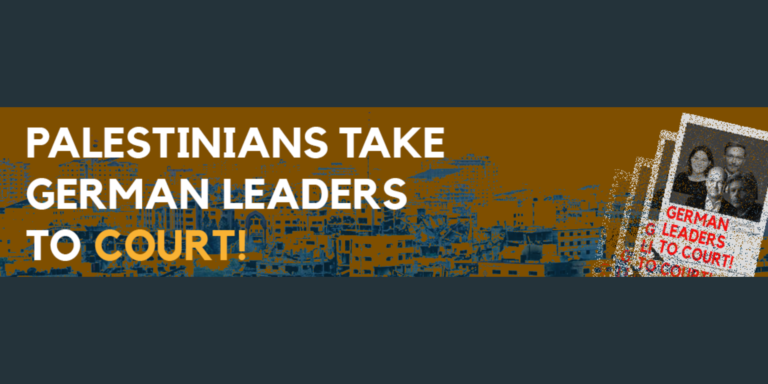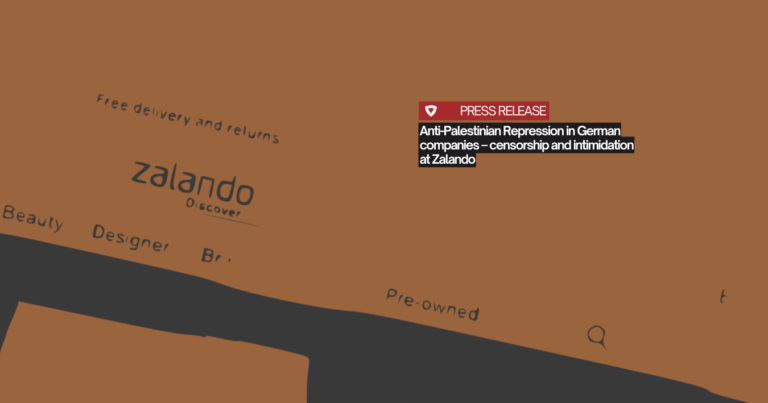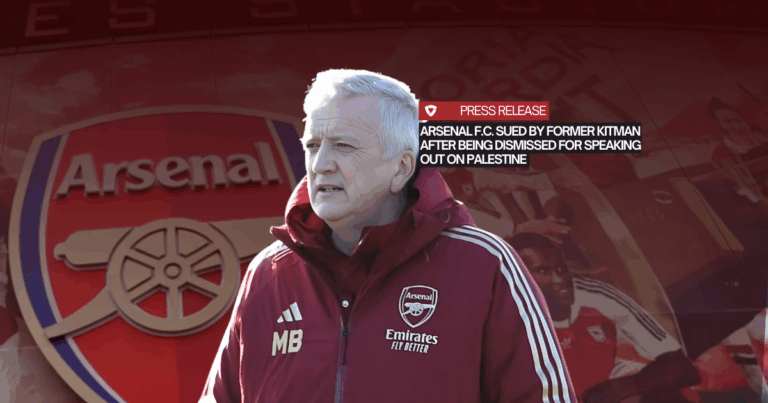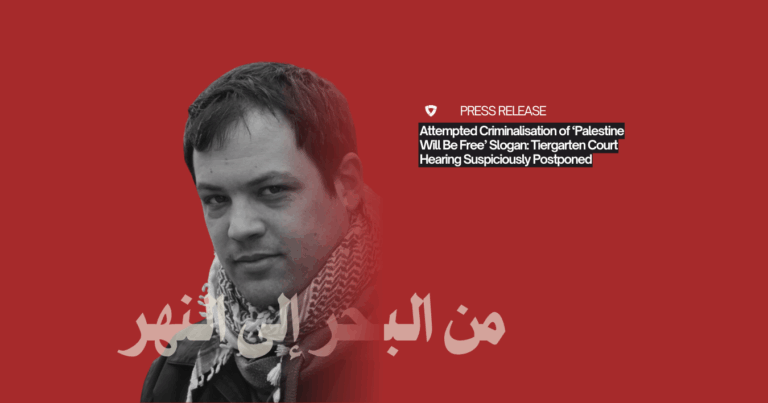How a Court Ruling Greenlit Police Violence and a massive disinformation campaign- ELSC Summary Report on Nakba Demo in Berlin
Following an appeal by Berlin police, the Higher Administrative Court Berlin Brandenburg had once again restricted this year’s Nakba demonstration in Berlin moments before the demonstration started on 15th May at Berlin Südstern — overturning an earlier decision secured by the European Legal Support Center (ELSC). The court sided with Berlin police, accepting their weak justification and limiting the demonstration to a stationary rally. This in turn gave the Police a green light to escalate into extreme violence.
On 15. May each year Palestinians and the Palestine solidarity movement protest the ongoing genocide and ethnic cleansing of the Palestinian people and mourn the catastrophe of 1948. In Germany, Nakba commemorations as well as other demonstrations in solidarity with Palestine, are routinely banned, restricted or subjected to extreme police violence.
The ELSC’s newly launched database on anti-Palestinian repression documents these reoccurring Nakba demonstration bans. Our database proves that this is not an isolated case rather, a systematic attack to silence and criminalise the Palestinian solidarity movementin Germany. The database is accessible at index-of-repression.org
The first ruling: a short-lived legal victory
This year the Berlin assembly authority restricted the Nakba demonstration in Berlin to a stationary rally at Südstern. In response, the ELSC has filed an urgent appeal at the administrative court in Berlin, as we view this as an unacceptable violation of freedom of expression and assembly, rights protected under Articles 5 and 8 of the German Basic Law.
The urgent application argued that: the justification provided by the assembly authority does not justify its order for immediate enforcement, their risk assessment is arbitrary and incomprehensible, restricting the demonstration to a stationary assembly is unconstitutional and undermines its communicative purpose of reaching wider communities, especially in Berlin-Neukölln.
Following our intervention, the Berlin administrative court ruled against the Berlin assembly authority ‘s attempt to limit the demonstration. The court decided that restricting the demonstration to a stationary rally was unlawful and affirmed the arguments we provided in the urgent appeal. In its decision, the court highlighted that the Berlin assembly authority’s reasoning for a restriction to a stationary rally was inconsistent and therefore dismissible.
The Police had baselessly argued that there were fewer criminal offences at stationery rallies without any examples or further explanation. The court pointed out that the Berlin Police had in fact banned and aggressed stationary rallies in solidarity with Palestine as well.
The police also claimed that it would be easier to prevent and/or arrest offenders at stationary rallies, which the court rejected stating that accepting this reasoning would justify restricting any and all demonstrations to stationary rallies.
The second ruling: overturning our legal victory for political purposes
However, Police authorities then filed an appeal at the Higher Administrative Court Berlin Brandenburg. This court in turn revoked the previous decision just moments before the demonstration officially started and reaffirmed the Police’s unconvincing and inconsistent arguments for the restriction which had been fully refuted by the lower court. Furthermore, the court endorsed the Police’s argument that a stationary rally was required because it would be more difficult for the Police to translate “foreign languages” in chants or on banners at a marching demonstration.
ELSC Lawyer Alexander Gorski comments: “This ruling is deeply concerning for several reasons: first and foremost because the judges accepted and ruled on the basis of highly questionable, inconsistent assumptions presented by the police as facts. Furthermore, since this is a higher court, this ruling will be used as a legal precedent to restrict coming Palestine solidarity demonstrations and thereby ultimately restricting fundamental rights such as freedom of expression and assembly. Finally, the extreme Police violence that followed must also be considered a direct result of this ruling. It clearly encouraged the Police to escalate into obscene violence.”
Nakba Demonstration: Police escalate and use extreme violence against the protesters
The demonstration’s organisers, the collective Nakba77 described what followed at the event:
“Long before the demonstration began, the police had already erected metal barricades around the square, deployed dozens of police vans, police dogs, and water cannons. Alongside the mass force of regular riot police, the notoriously violent special unit BFE (Beweissicherung und Festnahme Einheit) had also been mobilised. Police officers — the majority without wearing the mandatory identification numbers — surrounded the participants from all sides, forcibly containing the protest and restricting people’s free movement.
What followed was one of the most violent crackdowns on Nakba commemoration and anti-genocide protests in Berlin history. The police violence was not incidental – it was deliberate and orchestrated by the Berlin Senate of the Interior and the Police Presidency of Berlin. This is evidenced by the following record:
- 88 arrests, most of them brutal, were made throughout the rally. In violation of German law, the arrests were made without being announced.
- At least 36 protestors including minors were injured by police officers. Several protesters required medical attention, which was repeatedly blocked, denied, and delayed by the police.
- Several protestors were hospitalised, including unconscious and bleeding demonstrators.
- Police officers punched, kicked, shoved, and kneeled on the necks of protestors. Police officers beat protestors on their heads and kidneys intentionally, creating a risk of long-term health damage.
- Police officers repeatedly stormed the rally, indiscriminately pushing and punching protestors, causing panic and suffocation among the crowd.
- Police officers ripped off banners while violently beating protestors.
- Several arrested protestors reported that they were beaten whilst in the police car and in detention. The use of violence on arrested people is prohibited by international law and constitutes the crime of torture.
- Journalists reported being aggressively pushed aside, beaten, arrested, and restrained from documenting the police violence. There were also several incidents of sexual harassment by the police.
- The police repeatedly prevented paramedics from attending the injured. Paramedics were repeatedly violently shoved away by police officers when they tried to approach the injured.
- In several cases, lawyers were not allowed to reach the arrested. One lawyer was violently shoved away by several police officers when he tried to legally assist an injured arrested person.
- The police stormed the protest truck (which acted as the stage of the demonstration), forcing the organisers to turn off the sound system, and arrested one of the organisers.
- Around 8:30 p.m., the police forcibly dispersed the rally without any warning to the organisers or participants. As the protestors were leaving the area, several were arrested and beaten by police.”
Professor Clemens Arzt, distinguished expert for Police and assembly law, who has trained the Berlin Police for decades and was also present at the demonstration commented: “In my opinion, the police escalated the situation very early on.”
Aftermath: Police Disinformation Campaign & German media complicity
This escalation of Police violence must be considered as intentional and orchestrated. This can be clearly observed in the following statements made by public officials and German mainstream media which amount to a disinformation campaign.
In their first public statements the Berlin police claimed one Police officer who was hospitalised with a broken arm had been “pulled in by the crowd, deliberately attacked and knocked to the ground and then stomped on.” Shortly after, videos emerged on social media which entirely contradicted the Police’s account of events. The police officer is seen here jumping into the crowd, punching several demonstrators with his later broken arms, kicking a demonstrator to the ground before then collapsing behind a safely secured police fence – seemingly from exhaustion.
Nevertheless, German mainstream media uncritically echoed the claims made by the Berlin police. The statements by German politicians that followed mark a highly dangerous escalation in rhetoric. While the police officer was at no point during the events in life-threatening condition, the Mayor of Berlin’s Neukölln district Martin Hikel (SPD) stated: “I can only interpret what happened there as attempted murder of a police officer. Some people have finally lost all connection to our democracy and our common good.” The Neukölln district is known for its vibrant Palestinian/Arab community.
Berlin’s Mayor Kai Wegner (CDU) annouced: “The attack on a Berlin police officer during the demonstration in Kreuzberg is nothing less than a cowardly, brutal act of violence. Anyone who attacks the police officers attacks our rule of law – and therefore all of us. […] One thing is absolutely clear: anyone who abuses the right to demonstrate in order to sow hatred, spread anti-Semitic propaganda or commit acts of violence will be confronted with the full force of the law.”
While public statements by German politicians like these about people protesting Genocide might sound shockingly reminiscent for some, they are entirely normalised in German public discourse and uncritically echoed by German mainstream media. It is noteworthy that these incitements to escalate violence are based on a strategically fabricated lie.
In one of the few critical articles published in German media after the event, journalist Nick Brauns comments: “These were precisely the images that needed to be provoked to further intensify the repression against Palestine solidarity. Much of the media is aiding and abetting such state attacks on freedom of expression and assembly by uncritically adopting police reports and demonising the demonstrators as a supposedly anti-Semitic mob. No one should be under any illusion that restrictions on democratic rights will remain limited to pro-Palestinian activists.”
Anti-Palestinian Repression in Germany – the continuous abolishment of fundamental rights
The events around this year’s Nakba demonstration in Berlin, which happened now more than ever undeniable in the context of systematic annihilation of the Palestinian people through mass starvation and advanced weaponry supplied by the state of Germany, shamefully illustrate the systematic nature of the mechanisms of anti-Palestinian repression in Germany.
While German politicians incite the Police authorities to brutal crackdowns and extreme violence, German courts seem politically pressured and hesitant to rule based on constitutionally guaranteed fundamental rights and rather accept vague and inconsistent excuses provided by executive organs of the state.
Centering the genocide
German law enforcement agencies, politicians and media alike have created a societal atmosphere in Germany which favors the abolishment of fundamental human rights over any expression in opposition to their complicity in an ongoing Genocide.
We also need to remind ourselves that the repression is meant not only to silence dissent but also to distract from the genocide.
The European Legal Support Center will continue to challenge all forms of anti-Palestinian repression in Europe and assist the Palestine solidarity movement through all means at our disposal on the mission to end the genocide.

